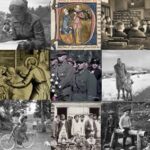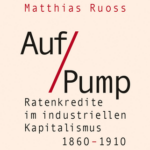Vortrag im Rahmen der Reihe „Geschichte am Mittwoch“ des Inst. für Geschichte der Univ. Wien und Jour fixe des Instituts für die Erforschung der Frühen Neuzeit (Web)
Zeit: 16.10.2024, 18.30 Uhr
Ort: Univ. Wien, HS 30, Universitätsring 1, 1010 Wien – und virtueller Raum
Was für die Universitäten heute gilt, traf auch auf die hessen-kasselische Landesuniversität Marburg im 18. Jhd. zu: Die finanziellen Mittel waren knapp. Dies hatte geringe Besoldungen der Professoren, eine schlecht ausgestattete Universitätsbibliothek und fehlende universitäre Sammlungen zur Folge. Originär universitäre Aufgaben wurden von den Lehrstuhlinhabern übernommen. Sie öffneten ihre privaten Bibliotheken für Studenten, nutzten Exponate der eigenen Sammlungen zu Unterrichtszwecken und stellten Auditorien zur Verfügung. Inwieweit die Haushalte dies tun konnten, war abhängig von ihren finanziellen Möglichkeiten. Wie andere frühneuzeitliche Haushalte waren auch die der Professoren sogenannte mixed economies. Professoren übten in vielen Fällen ein weiteres Amt aus, die Einnahmen aus ökonomischen Aktivitäten ihrer Ehefrauen und Erträge aus dem familiären Vermögen bildeten wichtige Teile der Haushaltseinkommen. Dabei war die Prosperität der familiären Ökonomie im 18. Jhd. in hohem Maße mit verwandtschaftlichen Verflechtungen der
Professorenfamilien untereinander verknüpft.
Als Teil des abgeschlossenen Dissertationsprojekts zu ökonomischen Praktiken frühneuzeitlicher Professorenhaushalte am Beispiel der Universität Marburg gibt der Vortrag einen Einblick in gelungene, aber auch gescheiterte Strategien des Haushaltens und zeigt, dass familiäres Vermögen ein maßgeblicher Faktor für die Entwicklung der kleinen protestantischen Landesuniversität war.
Moderation: Sabine Miesgang
Christina Stehling studierte Geschichte und Europäische Ethnologie und war von 2019 bis 2023 Doktorandin an der Philipps-Univ. Marburg. Ihre Forschungsinteressen liegen in der Bildungs- und Landesgeschichte sowie in der Geschlechtergeschichte.
Online-Zugang zur Veranstaltung: https://univienna.zoom.us/j/62428996607?pwd=NmZtTnpVV0hPUjNyYURycTFoLzg0QT09

 Seventh Annual HEX Conference 2025
Seventh Annual HEX Conference 2025  Institut für Historische Sozialforschung
Institut für Historische Sozialforschung